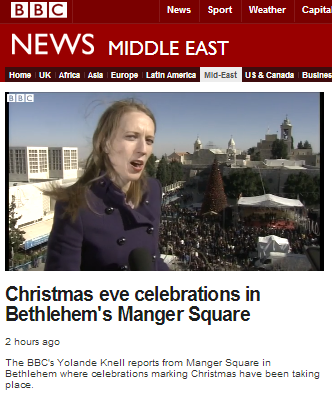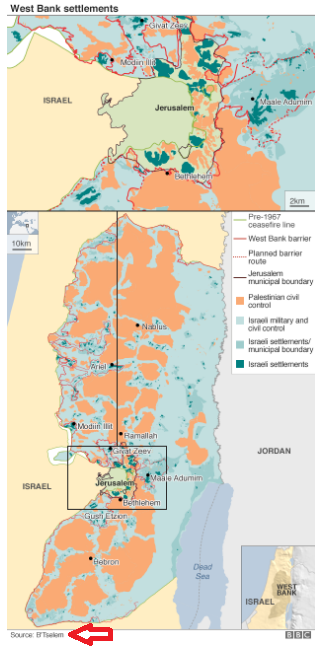Earlier this month we noted here that a report which appeared on the BBC News website’s Middle East page on August 27th misled audiences with regard to UN World Food Programme supplies of food aid to the Gaza Strip.
The BBC article stated:
“On Wednesday, the UN’s World Food Programme said one of its convoys had entered Gaza for the first time since 2007, carrying enough food to feed around 150,000 people for five days.
Fishing boats also ventured out to sea as restrictions were eased.”
As we wrote at the time:
“Now of course most readers would understand those words to mean that the UN’s World Food Programme has not been able to supply people in the Gaza Strip with food aid since 2007. Given that the report’s previous sentences relate mostly to statements made by the Israeli prime minister and the subsequent sentence uses the words “also [….] as restrictions were eased” in relation to the fishing zone, readers might well also assume that the fact that a WFP convoy had not been able to enter the Gaza Strip since 2007 had something to do with restrictions implemented by Israel.”
In fact, the WFP’s statement related to entry to the Gaza Strip from Egypt, but that was not made clear in the BBC’s report and neither was the fact that the WFP has been able to supply food aid to the Gaza Strip via the Israeli-run Kerem Shalom crossing.
A reader complained to the BBC about the inaccuracy of the report and received the following reply:
“You are quite correct and we would like to apologise for this error. We have amended the article and also added a correction notification at the bottom to outline the change.”
The above paragraph now reads:
“On Wednesday, the UN’s World Food Programme said one of its convoys had entered Gaza from Egypt for the first time since 2007, carrying enough food to feed around 150,000 people for five days.”
A footnote has been added to the article:
Unfortunately though, in the continuing absence of a dedicated corrections page on the BBC News website, it is unlikely that those who read the original version of the report during the three weeks in which it stood uncorrected would have reason to return to this article and see that footnote. One must therefore once again ask the BBC what exactly is the point of amendments and corrections to reports appearing on its website if no effort is made to ensure that audiences receive the corrected version?
Related Articles:





